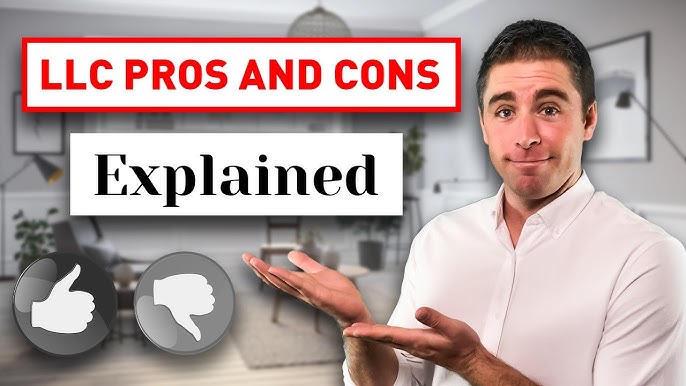Benefits of Having an LLC
Welcome to our comprehensive guide on the benefits of having a Limited Liability Company (LLC). In this article, we will delve into the advantages that an LLC can offer to businesses and individuals alike. By understanding these benefits, you can make an informed decision about whether forming an LLC is the right choice for you.
Asset Protection
One of the primary benefits of having an LLC is the protection it provides for your assets. By forming an LLC, you create a legal separation between your personal and business assets. This means that in the event of a lawsuit or debt, your assets such as your home or car are generally protected from being used to satisfy business liabilities.
Tax Flexibility
An LLC offers flexibility in terms of taxation, allowing you to choose how you want your business to be taxed. By default, an LLC is considered a pass-through entity, meaning that the profits and losses of the business are passed through to the owners and reported on their tax returns. However, LLCs also have the option to be taxed as a corporation, which may provide certain tax advantages depending on your specific situation. It is recommended to consult with a tax professional to determine the best tax structure for your LLC.
Reduced Paperwork
Compared to other business entities, such as corporations, LLCs generally have less paperwork and formalities to comply with. This can save you time and resources, allowing you to focus on running your business. LLCs are not required to hold annual meetings or keep extensive records, which can be burdensome for other types of entities.
Increased Credibility
Forming an LLC can enhance the credibility and professionalism of your business. By having “LLC” in your business name, potential customers, partners, and investors can see that you have taken the necessary steps to establish a legal and legitimate entity. This can instill confidence in your stakeholders and help you attract more opportunities for growth and success.
Pass-through Taxation
As mentioned earlier, one of the tax advantages of an LLC is its default classification as a pass-through entity. This means that the profits and losses of the business are not taxed at the entity level. Instead, they “pass through” to the owners and are reported on their tax returns. This avoids the double taxation that can occur with corporations, where profits are taxed at both the corporate and individual levels.
Flexibility in Management
LLCs offer flexibility in terms of management structure. Unlike corporations, which have a more rigid hierarchical structure with directors and officers, LLCs can be managed by their owners or by appointed managers. This allows you to choose the management structure that best suits your business needs and preferences.

In conclusion, forming an LLC can provide numerous benefits for businesses and individuals. From asset protection and tax flexibility to reduced paperwork and increased credibility, an LLC offers advantages that can contribute to the success and growth of your business. It is important to consult with legal and tax professionals to ensure that an LLC is the right choice for your specific circumstances. By understanding the benefits and making an informed decision, you can take advantage of the opportunities that come with having an LLC.
Frequently Asked Questions about the Benefits of Having an LLC
1. What is an LLC?
An LLC (Limited Liability Company) is a legal entity that provides limited liability protection to its owners while offering flexibility in terms of taxation and management.
2. What are the main benefits of having an LLC?
The main benefits of having an LLC include limited personal liability, pass-through taxation, flexibility in management, and potential tax advantages.
3. How does an LLC protect personal assets?
An LLC protects personal assets by separating the business’s liabilities and debts from the owner’s assets. This means that if the LLC faces legal or financial issues, the owner’s assets generally cannot be targeted to satisfy business debts.
4. What is pass-through taxation?
Pass-through taxation is a tax structure where the profits and losses of the LLC “pass through” to the owners’ tax returns. This means that the LLC itself does not pay federal income taxes, avoiding double taxation.
5. Can a single person have an LLC?
Yes, a single person can have an LLC. It is called a single-member LLC. It provides the same benefits as a multi-member LLC but with simplified management and tax reporting.
6. Can an LLC choose how it wants to be taxed?
Yes, an LLC can choose how it wants to be taxed. By default, an LLC is taxed as a disregarded entity (for single-member LLCs) or a partnership (for multi-member LLCs). However, it can also elect to be taxed as a corporation by filing the necessary forms with the IRS.
7. What kind of businesses can form an LLC?
Almost any type of business can form an LLC, including small businesses, startups, professional service providers, real estate investors, and freelancers.
8. Are there any ongoing requirements for maintaining an LLC?
Yes, there are ongoing requirements for maintaining an LLC, such as filing an annual report, paying necessary fees, and keeping proper records of business activities.
9. Can an LLC have multiple owners?
Yes, an LLC can have multiple owners, known as members. These members can be individuals, corporations, or other LLCs.
10. How can an LLC provide tax advantages?
An LLC can provide tax advantages through various means, such as deducting business expenses, taking advantage of self-employment tax savings, and utilizing certain tax credits and deductions available to businesses.




